Zombies - Interview
by Lisa Torem
published: 23 / 4 / 2011
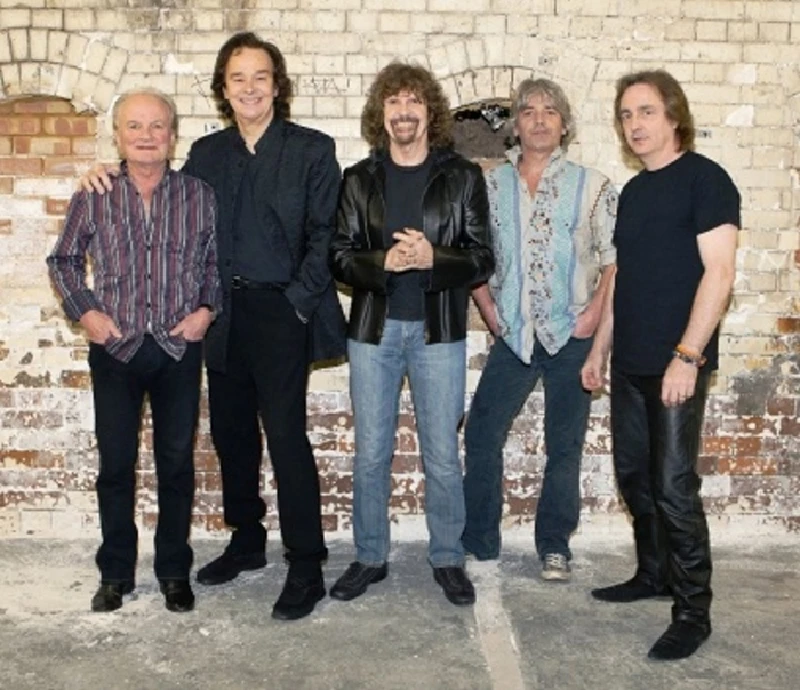
intro
Lisa Torem chats to Colin Blunstone, the singer with seminal 60's band the Zombies, about his group's early history and their new album, 'Breathe Out, Breathe In'
The Zombies charmed the American pop-rock market in the phenomenon known as the second wave of the British Invasion, and it was easy to comprehend the attraction. Young Colin Blunstone, in his first recording, ‘She’s Not There’ (1964), showcased his angelic voice, drummer Hugh Grundy and bassist Chris White supported the performance with both an eerie bass line and uplifting back beat, and Paul Atkinson as lead guitarist, flawlessly added a tasty infusion of jazzy phrases. Rod Argent, a largely, self-taught keyboard player/organist/chorister, who, like the other band members drew inspiration from jazz, blues and rock, became responsible, along with White, for much of the Zombie songwriting and arranging, which, when first heard by American audiences, swept up the Billboard charts. ‘Odessey and Oracle’ (1968), which drew critical acclaim unfortunately after the band had broken up, might have not been heard, if it were not pushed by Columbia recording artist, Al Kooper, who recognised its originality. Alhough their 1965 debut, ‘Begin Here’ was a mix of R & B covers and originals, ‘Odessey and Oracle’ contained gems that explored genres such as British Music Hall, jazz, blues and psychedelia. After the Zombies discontinued, Rod Argent formed his next group, Argent, and Colin Blunstone worked on recording a series of albums, starting with 1971’s ‘One Year’ on which he still worked closely with Argent and White , who served as producers and songwriters. In 2001 Blunstone and Argent collaborated on stage, again, and rediscovered their mutual joy of performing jointly. In 2004 with the line-up of bassist Jim Rodford (Kinks) and percussionist and Rodford’s son, Steve, and guitarist Keith Airey, the Zombies continued their legacy, performing their solid hits, while adding new numbers. Sadly, that year, Paul Atkinson, who had retired from performing and had served as an A & R professional, and whom the other members had shared dinner with shortly before they heard the news, died of liver and kidney disease. . Their new album, ‘Breathe Out, Breathe In’, which includes the work of guitarist Tom Toomey, both Rodfords, Blunstone and, of course, Argent, combines the old and the new. The inimitable harmonies, Mellotron, blasting keyboard riffs and disparate influences are all there, in what Argent describes as an attempt to provide an “organic” sound. Interviewing the soft-spoken, Colin Blunstone by phone was incredibly inspiring. The St. Albans ex-rugby player spoke in great detail about the Zen of singing, his life-long partnership with Argent and great admiration for the late Paul Atkinson. We mutually agreed that the Zombies, then and now, not only swept a nation, in that second, tumultuous wave, but also engendered its own distinct euphoria. PB: I want to talk about you as a performer because I’ve been reviewing a lot of You Tube videos and I was noticing that one of the things that make you really distinct as a performer is that there is really no gimmickry. There’s no attempt to look into the audience or schmooze with the other players or hit a tambourine, as a lot of other singers do. You seem to be completely in the moment when you perform. At what point did you say, “This is who I am as a singer?” CB: When I was younger I actually can remember playing a tambourine. I’ve talked about this quite a lot with Rod really, and I think a lot of how my performance has evolved is to do with my relationship with Rod because, with the Zombies, it’s an unusual situation in that we are at least equal partners. Whereas, in probably, many bands people would expect the lead singer to be the prominent performer in the band, but we are very much equal partners when we perform, and so I feel much more comfortable in being quite still – when I sing – because I feel it’s not really just about me. It’s about the band and in particular it’s about Rod, and so I feel quite comfortable being very still and I am very much concentrating on what I’m doing. – I mean, I love singing. It gives me great pleasure. But, I do give it everything I’ve got and a lot of the songs that we sing are in quite challenging keys, and both Rod and I like my voice in its upper register. And, so, it’s something that I do have to be in the moment. I have to be really concentrating on what I’m doing. PB: Does your relationship with Rod ever feel too personal? Writing a song for another artist do you guys ever hit a wall? For example, ‘I don’t know if I like that progression,’ or ‘I don’t like the way you interpreted those lyrics.’ Are you comfortable with that kind of intense relationship? CB: I don’t think Rod’s ever written a song that I didn’t like. He’s always talking about how, if he’s writing a song for me to sing, subconsciously he is specifically writing for my voice in mind. For my part, I find…some of his songs are quite complicated. I usually find them quite natural to sing, and I think that to a large extent he will have written for my voice in mind. PB: The song, ‘I Want to Fly’, is almost like an operatic aria; it’s really quite complex, and remarkable that you can both create that kind of material. CB: It’s a favourite of mine as well. We don’t play it at the moment. There are so many songs that we’ve recorded together, and it’s often quite difficult to work out what to leave out. I can tell you a couple of stories about that song. Very sadly, Rod got a phone call just before we went onstage in Scotland in 2004. We knew Paul Atkinson, our original guitarist, was desperate. But Rod was told just before we went onstage that Paul had died and so we went onstage with very, very heavy hearts, and in the middle of the show we sang ‘I Want to Fly,’ and it’s the only time it’s ever happened to me, but I just couldn’t hold it back. The tears were flooding, and people in the audience didn’t know what was going on, but anyway we got through it. Another story about that song – it quite amazes me that we played at the Royal Albert Hall one night and it was part of a charity evening so Eric Clapton was on and a lot of other big names. Bill Wyman and the Rhythm Kings were on, and lots of fabulous artists, and Rod and I did a couple of songs with the band, but we walked on to the Albert Hall stage and just sang, ‘I Want to Fly’ just the two of us, and it felt so natural. Now, the Albert Hall is very prestigious, obviously, but it’s also a very big venue. It had just been renovated and it was a perfect evening. It was a beautiful venue and we walked out and we sang, just the two of us, ‘I Want to Fly’, and I thought this is just magical, it was great, and it felt so natural even though there were over 5000 people there. Just doing piano and voice on the song was so great. PB: ‘Time of the Season’ has hit more than the 6 million mark for air play. The song has been covered by improv groups, high school choirs, young rap artists, rock bands… Whose sigh is it though at the end of that instrumental riff? CB: Oh, the clap and the mouth, you know, (Colin exhales). PB: Yes. CB: Rod. PB: It’s Rod! And, that’s just a pure sigh – it’s not a production technique? Is it just his sigh? CB: (Laughs). It’s his sigh, yeah. It was 1967 and I can’t remember if there are any effects on it, but it’s not anything electronic or sampled, like they do now. Those things weren’t available. I can’t remember if we all did the hand clap or whether it’s just him. On stage, he’s doing the organ, so he can’t do the hand clap. So, we all do the hand clap and we all do a bit of a sigh. The sound engineer, who travels with us, has asked me, because my mic’s quite loud, because I’m doing the lead vocals, if I’m going to do the sigh, (Colin exhales two different ways). To get to one side of the mic, because otherwise it just takes over the whole thing if I’m right up close on the mic. But, it was definitely Rod. We recorded that in Studio Three at Abbey Road and Geoff Emerick was the engineer. He had just been working on the ‘Sergeant Pepper’ album. In fact, we followed the Beatles into Abbey Road. They mostly recorded in Studio Two. But they did do some sessions in Studio Three, and we recorded in the afternoon, and it was the last song we recorded for ‘Odessey and Oracle’, and it had only just been written. We had actually been rehearsing that morning because it really, literally, had just been written. When we came to record it, it almost makes me smile, because it’s a song about the time of the season for loving and Rod and I, he was in the control room and I was in the actual studio, I didn’t really know the song that well, because it had literally just been written, and so, he was saying, very tactfully, to me, “Colin, the melody isn’t quite that, it’s this….” and this went on for some time, and in the end, (Laughs) we were getting more and more heated with one another, and, because, also, we had a very small recording budget and so there was quite a lot of pressure the conversation went something like, (Laughs), “If you’re so bloody good, you come in and you bloody sing it!” And, Rod said to me, “You’re the bloody lead singer! You didn’t get it bloody right.” And, I’m singing (Colin sings over the phone), “time of the season for loving…” (Laughs). And, we’re having this fierce row in the middle of it… I always look back with a smile on my face when I think of that session. It happens. It’s forgotten five minutes afterwards. But, it was pretty fierce at the time, I can tell you. . PB: But, it was Rod’s idea to have the sigh in there? What a great idea, right? CB: Yeah, and the hand clap. It’s funny enough, on the new album; Rod’s gone back to some extent to what he used to do. When he wrote the song, he wrote the parts the people were going to play. I mean, a good example would be, in ‘She’s Not There’ where the bass goes (Colin imitates the bass line). The bass player didn’t work that out. Chris White would never say that he did. That was written as a part of the song. And with ‘Time of the Season,’ the hand clap and the breath, comes from Rod. Also, the chorus is done a capella with just voices. But, it wasn’t actually recorded like that; it was recorded with the band playing. And, then, afterwards, I think it was Rod, either Rod or Chris White, asked what would it sound like if we just dropped the band out. And they did it with faders on the desk. It was already recorded, so there is a version with the band playing all the way through, but, they just ducked the faders when it goes into “time of the season for loving…” The band was playing, but we ducked the faders so it sounded like a prayer. PB: Did Rod actually orchestrate the harmonies? CB: We had a system for doing that, but I must say that, first of all, Rod is an extraordinary keyboard player. He also has a very good idea of harmony, but on top of that he was a chorister in a local cathedral. We come from St. Albans, which is just north of London. That’s where we went to school. I didn’t, actually, I lived a little further out, but we all went to school, because we were a school band, originally, and Rod used to sing in the choir at the cathedral and, on top of understanding harmonies from the keyboard, he also understood harmony from singing regularly in church. So, he is a really hot harmony singer, but with the Zombies we had a special way of doing things, and I know people have told me that they’ve wracked their brains and driven themselves insane trying to work out how to do the harmonies authentically, but this is how we did it. Because I was a pretty unschooled singer, they would ask me to sing the melody as I heard it. Usually, the bit where I’m on my own, the solo bit, was fine, but then it went into three part harmony. I would sometimes take the top harmony naturally, so once we’d established that they would get me to sing that a few times, so that I’ve got that in my brain. And, then what Rod would try and do is to give a simple harmony to Chris White, because he’s got to play the bass. It always intrigues me how bass players can sing harmonies, because they’ve got the lead voice going against them. They’re playing the bass note, which may not be the main note of the chord that we’re playing. For instance, if we’re playing a C, they might be playing a G. And, they’ve got to sing a harmony note, which is different to the note they’re playing on the bass, and to the lead vocal. It’s really quite complicated for a bass player to sing harmonies. Rod would try to make a simple harmony for Chris, and a lot of the time it would be one note. So, Chris would be going, “La la la la la la la la, daa daa,” and, then, because Chris has got the easy harmony and I’m singing half melody and half top harmony, Rod would fill in all the other notes himself. Rod’s harmony would often be: (Colin sings a series of high and low notes that sound totally unrelated) and he’d have a really, weird one. So, that we weren’t necessarily singing a top harmony, a melody and a bottom harmony. It was more interaction, than that. I don’t know anybody else who does harmonies, like that, but that’s how we used to do it (Laughs). PB: Rod’s inspirations were very diverse, everything from Bach, Stravinsky, Eddie Cochran… CB: It’s true of the band, but, in particular, Rod. As he always says, he thought he only liked classical music, until he heard Elvis. And, then, later on, he was very into Miles Davis at a very young age. You’ve got classical music, Elvis, Chuck Berry, Little Richard and Miles Davis, and we were all delving into the blues and rhythm and blues and rock and roll, and so, there was a very wide spectrum of musical influences, which I think was one of our strengths, but I think, also, in an ironic sort of way, one of our weaknesses. People in the media like to categorise you or put you in a slot. And, if you’re not easy to categorise, you can miss out on a lot of exposure. I remember people talking to me about what they used to call “rackers” in American warehouses. They didn’t know where to rack the Zombies. And, if they didn’t know where to rack them, they had a problem. So, if your influences are too diverse, it can actually work against you. PB: The phrase, ‘She’s Not There.’ What does that mean to you? CB: In itself, it doesn’t mean an awful lot to me, but the record means a lot to me, because that’s the first record that I ever sang on and it will always be an incredibly important record to me. Let me just say this, that Rod has often said to me, that when he writes a song the meaning of the song is important to him, but the most important thing is the sound of the words. I don’t think everybody writes like that. But, it is very important to him. The meaning’s important, but more important, is the sound of the words. What intrigued me about ‘She’s Not There’ was, we were really an amateur band who had decided to – everyone was going to give up what they were doing, some were just getting out of school, so they hadn’t really started on a career, but we bought a big, old van and we said, we’re professional musicians and we’re going to go off and play gigs. I don’t know if we had a master plan or such. We were just going to see what happened. We got an opportunity to have a session in Decca Studios in West Hampstead, and we’d met a producer who was going to produce us, and I remember him talking to us about two weeks before we went into the studio. The main song we were going to do was Gershwin’s ‘Summertime.’ I don’t know what else we were going to do, I don’t remember. But, he just said, “You can always try and write something for the session in a couple of weeks time,” and then went on and spoke about something else. And, for me, it was forgotten. I thought that songwriters were a different kind of person to musicians. I thought it was a different craft, a different industry, but Rod and Chris White went away and wrote some songs, and Rod came back with ‘She’s Not There’ and I was completely astounded. I thought it was wonderful. And, Chris came back with the B side, which was ‘You Make Me Feel Good’, which again, was a really good song. It happened so casually. I think we all thought - we were 18 and 19 years old - this is so good. We really have a chance. And, of course, later on we realised the pitfalls of the industry and over the next few months how difficult it was, and how many things can go wrong. But, we were very naïve and we were very young. I think, back in the beginning, we thought this has got a chance. PB: I was listening to ’Odessey and Oracle’, and it seems that the seeds for your new album, ‘Breathe Out, Breathe In’ were planted back then. ‘A Rose for Emily’ was inspired by a short story by William Faulkner. And, on the new album, ‘A Moment in Time’ was based on a book by Laurie Lee about the Spanish Civil War. There’s a lot of research and diversity on the new album. CB: Again, the writing on the album, I’ve only written one song on it, so I just pick up little bits from what Rod tells me, but I know that what triggered ‘A Moment in Time’ was that he was in Spain and he was going to a lot of the places, where Laurie Lee had gone to when he had written his book, ‘A Moment in War’. That was then triggered together with the original guitar piece that starts the song. Our guitarist, Tom Toomey, was playing that guitar piece backstage one night, and I really liked that. And so Rod put the two things together and wrote the song. PB: I wanted to make one more comment about ‘Time of the Season.’ It was a hit in 1968, a year in which there was so much turmoil in the U.S. and yet, this song’s message was so optimistic. CB: I think we recorded it in the summer of 1967. It was a hit quite a bit later in America. It’s quite strange. People have said before that it captured the mood of the time, but it wasn’t written at that time ‘Time of the Season’ was written before that. It seemed to fit right in. It seemed to capture the mood of the time. There’s no accounting for that, is there? But, it’s something that I’ve noticed in the music business. In the old days, you would go into a record company and the head of A & R would sit you down and he would play you the number one record and he would say. (using a grave voice), “Well, boys, this is what we want from you.” What they didn’t realise is, if it’s number one, it’s already old. That’s gone. It had already been written, maybe six months, or maybe a year before. You’ve got to think about what’s next. I mean, you can be influenced by what’s going on in the moment, if you’re in that part of the industry, I don’t think we really ar, anymore, but if you’re in that sort of Top 40 part of the industry, you can be influenced by it, but you should never try to copy, as it’s too late. It’s gone. On ‘Odessey and Oracle’ and ‘Time of the Season’ we seemed to capture a mood with that album and with that single, but it was recorded sometime beforehand. That wasn’t recorded at the time. PB: Do you have any regrets that the band had already broken up when ‘Odessey and Oracle’ charted? Do you ever ask, “what if?” or do you feel you accomplished what you set out to do? CB: I must say that every one else in the band feels that we accomplished what we set out to do, and it was the right time for the band to finish. I am the only one (Laughs) – I think it’s more out of curiosity – but I would like to have seen what we did next. Because many bands, I didn’t know the Beatles, but I’d read about them the same as everybody else, and they’d gone to Germany and played very long hours in clubs in Germany and came back and played long hours in the Cavern and they’d done their apprenticeship. They’d found a musical direction. As our first record was a hit, we had to do all that in the glare of the public eye. There was a lot for us to learn, Rod and Chris had just started as writers. ‘She’s Not There’ was Rod’s first song. And Decca immediately called for an album. We were really stuck because the two main writers in the band had only just found out they had this talent to write songs and our first album was a little bit weak. We later on came to rely on Rod and Chris’s songs, but they didn’t have any catalogue. They didn’t have any songs. From 1964 when we started recording to 1967 when we did ‘Odessey and Oracle’ it took us that length of time to find our musical direction. And, with ‘Odessey and Oracle’, that’s when it happened. It didn’t have to be the end. I could see it as a new beginning. But, I have to say, that I’m the only one in the band who feels like that. It’s all academic, anyway. But, it just intrigues me, what might have been. PB: Do you agree with the comparisons to the Beach Boys and ‘Sgt. Pepper’? CB: I think it’s best that other people judge our work. I don’t think it’s for me to judge our work or compare it with other things, but if people do think there is a comparison then I’d be extremely flattered because ‘Pet Sounds’ and ‘Sgt. Pepper’ are two of my favourite albums. PB: When you debuted your solo record, ‘One Year’, you composed your own songs and couldn’t rely on the steady backing vocals of the Zombies. Was this adventure unsettling or exciting? CB: It was very different, regardless of the harmonies. It is very different when you’re a solo artist in many subtle ways. It’s more responsibility on your shoulders. But, I was really lucky that Rod and Chris produced the album. In fact we did use some harmonies. The first track is basically, Russ Ballard, Jim Rodford, Rod and me, and we’re using those same sort of harmonies. But, you’re right; we didn’t use it very much apart from that. We decided we were going to try these really unusual string arrangements, and so we veered off in that direction. If we hadn’t done those string arrangements, we probably would have done more harmonies and we would have been in the same vain as ‘Odessey and Oracle’ because we certainly had the singers in the studio, Chris White was co- producing, Jim Rodford’s a fine harmony singer, Rod, obviously, and Russ Ballard’s a great singer, so we certainly had the voices to do it, if we wanted to do it. PB: Was it a comfort to have Rod produce ‘Breathe In, Breathe Out’ in the sense that .he already knew the talents of the band members so well? CB: Do you mean, for me, personally, or for the band? Because I do like working with people I know. And, Rod is more of a studio animal than I am. He’s been really successful as a producer. He’s had huge successes in the UK and in Europe. So, we’re really lucky, I’m really lucky (laughs) to be in a partnership with him. I can take advantage of his expertise as a producer. He has a wonderful studio in his house. We record in his studio as well. I’m very lucky to be involved and be able to use Rod’s studio and have him as a producer as well, as well as a partner in the band. PB: In ‘Breathe Out, Breathe In’ and on ‘Let It Go’, Rod was inspired by Bach’s f minor keyboard concerto. CB: It is exactly that. It is a piece by Bach, I couldn’t exactly name what it is, but it is exactly that. PB: It’s intriguing that he can turn something that complex into a pop tune. CB: That was the foundation the song was written on. He just wanted to do that. We have been opening the show with just keyboards and me singing. Rod and I go on stage and just play that, the two of us. We then do two other songs with just piano and voice. It’s quite an unusual way to start the show, but it certainly gets people’s attention because there is just the two of us. PB: ‘Play it for Real’ has a real funky bass line, which is very contagious. Do you have a favourite track? CB: I find that quite difficult to answer because we’ve been playing ‘I Do Believe’ on stage for some months now and I really like that song very much. ‘A Moment in Time’ is one of my favourites. And, I like the title track, ‘Breathe Out, Breathe In.’ I also wrote ‘Any Other Way’ for the album. When I write a song, certainly, lyrically, they’re usually quite autobiographical, and this is no exception. With the Zombies, we haven’t done a lot of my songs, but I do a lot more on my solo projects. My lyrics are always stories. Pretty much, line for line, what happened to me. I just sit there thinking about it and I just write it down. I’m not looking for anything to rhyme in the first place, I just write down what happened. And that’s often how I write songs. PB: There’s a beautiful rhythm to that song, too, kind of like a samba. CB: Yeah, I think, in a way I would have liked it to be more fantanarish, really, if there is such a word. PB: It’s a good one. CB: Maybe a bit more rhythmic than it actually is, but I think it works pretty well, how we’ve done it. PB: Do you know the Brazilian song, ‘The Girl from Ipanema?’ To me, it has that kind of movement. CB: Yeah, I can hear that, exactly. PB: The Zombies are planning on some international touring. CB: We are. I think we’re coming to America. PB: Will you come to Chicago? CB: Is that where you are? We used to play in Chicago when we first started coming over and then we started to play on the edges. We don’t see too much down the middle. In the South, there is country and western, and, of course, they like heavy rock, and we’re probably heavier than people think. But, we’re not a heavy rock band, that’s for sure, so we tend to do the east coast and the west coast, and then we may well go right across Canada. But, we don’t do much down the middle. PB: Another feature on ‘Breathe In, Breathe Out’ is that the Mellotron and Hammond B3 is used. CB: We were trying to keep ‘Breathe In, Breathe Out’, as organic as we can. I don’t think we’ve used any samples. I don’t actually count a Mellotron. We tried to get the whole band playing at the same time in the studio. Often, when you record now a days it’s one person at a time and then people just overdub their parts. To a large extent, we were all in the studio playing at the same time. Rod wanted to use just piano and organ and Mellotron. Part of the reason that he thought it was such a good idea to use Mellotron was because we did a series of concerts in Britain celebrating the 40th Anniversary of ‘Odessey and Oracle’ and we managed to replicate it exactly on stage and we used a Mellotron ,and Darian Sahanaja, from the Brian Wilson Band, came over to play Mellotron while Rod played organ and piano. And I think we were all really struck by how interesting and exciting and attractive, the Mellotron is. I think it had got a bit forgotten and so we thought it was time to use it again, and, as a result of doing those concerts we have used it quite liberally on this album. PB: Last question! Would you please describe a perfect evening? It can be anywhere in the world, all expenses paid. CB: I think I’d like a balcony suite on the Queen Elizabeth. What’s the biggest ship? A super liner, with family and friends around me and the sun going down and the champagne corks popping, and I think that would do me very nicely. PB: Thank you.
Band Links:-
https://www.thezombiesmusic.com/https://en-gb.facebook.com/thezombiesmusic/
https://twitter.com/TheZombiesMusic
http://www.colinblunstone.net/
https://en-gb.facebook.com/colinblunstone
https://twitter.com/colinblunstone
Have a Listen:-
Picture Gallery:-
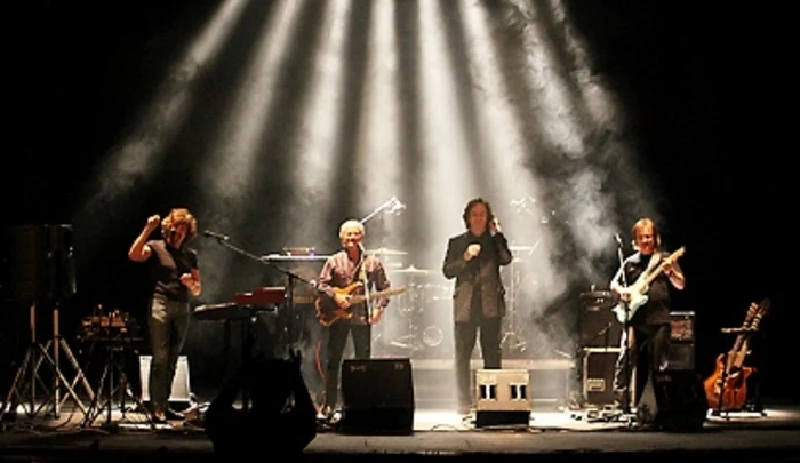
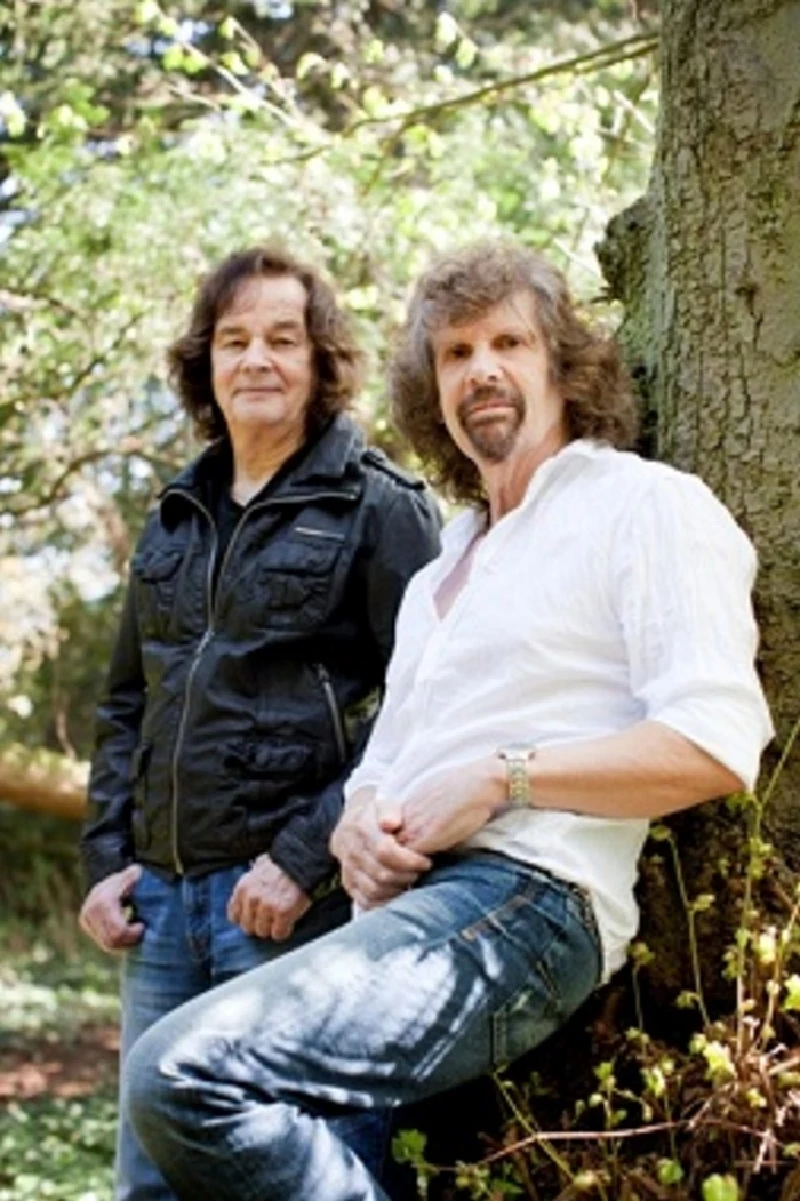
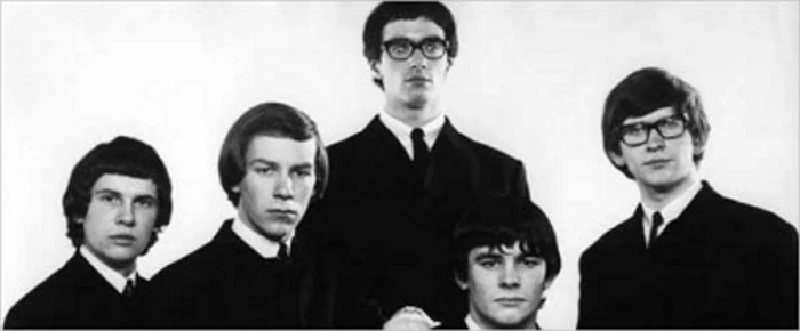
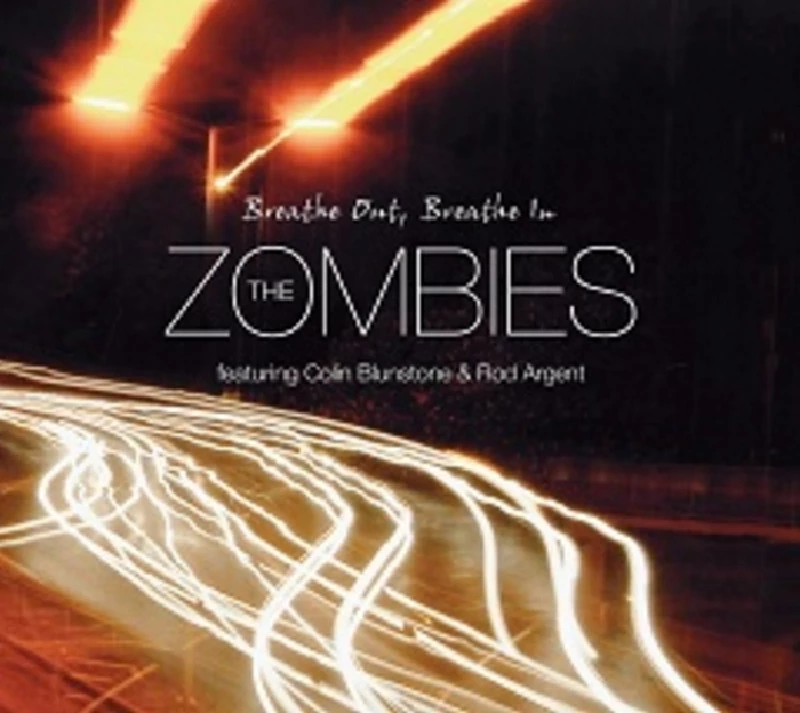
interviews |
|
Interview (2024) |
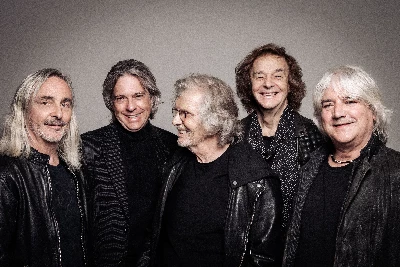
|
| Vocalist Colin Blunstone talks to Lisa Torem about the Zombies’ upcoming UK and US tours, special guests and how the music business has changed since the Sixties. |
| Interview with Rod Argent (2023) |
| Interview (2021) |
| Interview (2020) |
| Interview with Colin Blunstone (2018) |
| Interview (2016) |
| Interview (2016) |
| Interview (2015) |
profiles |
|
In the Beginning (2019) |
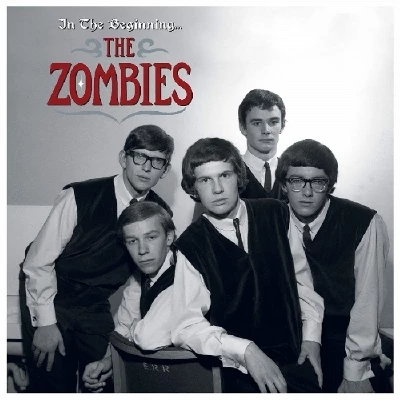
|
| Adam Coxon profiles 'In the Beginning', a new five LP vinyl only only box set of early Zombies recordings. |
live reviews |
|
Old Town School of Folk Music, Chicago, 1/7/2022 |
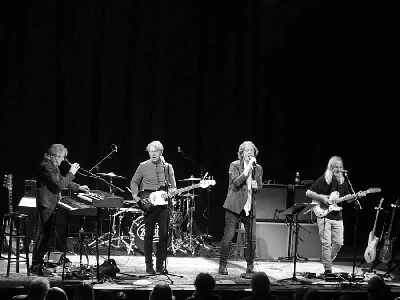
|
| After a two-year lockdown, The Zombies rose above adversity to tour and celebrate their 2019 Hall of Fame induction. Lisa Torem at the Old Town School of Folk Music in Chicago enjoys both the classics and new tunes. |
| City Winery, Chicago, 20/3/2018 |
| Mayne Stage, Chicago, 1/8/2012 |
| Ferry, Glasgow, 19/11/2011 |
photography |
|
Photoscapes (2015) |
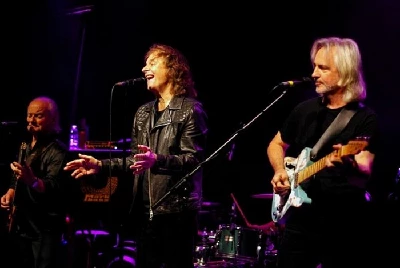
|
| Darren Aston takes photographs of iconic 60's band the Zombies at the Arts Club in Liverpool |
reviews |
|
Breathe Out Breathe In (2011) |
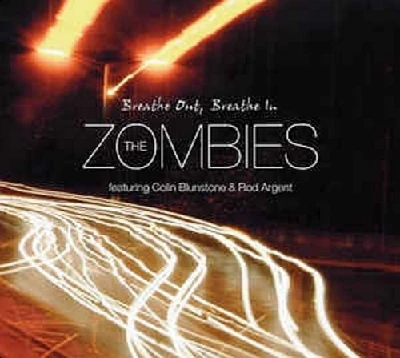
|
| Occasionally effective latest album from influential 60's act the Zombies, which, however, doesn't unfortunately match up to the classic work of their past |
most viewed articles
current edition
Carl Ewens - David Bowie 1964 to 1982 On Track: Every Album, Every SongArmory Show - Interview with Richard Jobson
John McKay - Interview
Colin Blunstone - Thalia Hall, Chicago, 16/7/2025
Billie Eilish - O2 Arena, London, 10/7/2025
Bathers - Photoscapes 1
Visor Fest - Valencia, Spain, 26/9/2025...27/9/2025
Loft - Interview
Sir Tim Rice - Interview
Robert Forster - Interview
previous editions
Manic Street Preachers - (Gig of a Lifetime) Millennium Stadium, Cardiff, December 1999Heavenly - P.U.N.K. Girl EP
Beautiful South - Ten Songs That Made Me Love...
Peter Perrett - In Dreams Begin Responsibilities Interview Part One
Boomtown Rats - Ten Songs That Made Me Love....
Oasis - Oasis, Earl's Court, London, 1995
Trudie Myerscough-Harris - Interview
Coldplay - Wembley Arena. London, 16/8/2022
Prolapse - Interview
Pixies - Ten Songs That Made Me Love...
most viewed reviews
current edition
Davey Woodward - Mumbo in the JumboSick Man of Europe - The Sick Man of Europe
Lucy Spraggan - Other Sides of the Moon
Phew, Erika Kobayashi,, Dieter Moebius - Radium Girls
Suzanne Vega - Flying With Angels
Amy Macdonald - Is This What You've Been Waiting For?
Bush - I Beat Loneliness
Blueboy - 2
Alice Cooper - The Revenge of Alice Cooper
Cynthia Erivo - I Forgive You
Pennyblackmusic Regular Contributors
Adrian Janes
Amanda J. Window
Andrew Twambley
Anthony Dhanendran
Benjamin Howarth
Cila Warncke
Daniel Cressey
Darren Aston
Dastardly
Dave Goodwin
Denzil Watson
Dominic B. Simpson
Eoghan Lyng
Fiona Hutchings
Harry Sherriff
Helen Tipping
Jamie Rowland
John Clarkson
Julie Cruickshank
Kimberly Bright
Lisa Torem
Maarten Schiethart